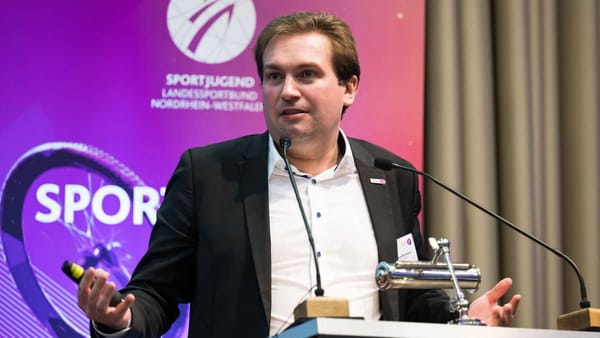Sports Association NRW positions itself on non-profit status of E-Sport




E-Sport isn't sport, but associations should nevertheless be considered non-profit: In a positioning paper the Sports Association of Germany most populous state NRW clarifies their position on gaming. Their statement comes in a time of uncertainty for E-Sport clubs in Germany, as the government is still negotiating the issue. The Federal E-Sport Association welcomes the sport association's decision.
For almost a year now, the German industry has been waiting for news on the classification of e-sports as non-profit by the German Federal Gouvernment, which could create considerable advantages and legal certainty for many associations. In November 2022, the status of e-sports was still a negotiating issue for the federal government, which remains in disagreement about the non-profit status of various associations. Since then, the federal government, which actually wants to have made a decision by the turn of the year, has been silent on the issue. Far more often, sports federations, including the IOC, are speaking out about what can actually be considered e-sports and - often more important - what cannot.
In a new position paper, the sports association of the most populous German state Northrine-Westfalia, the Landessportbund NRW (LSB NRW) has now spoken out on e-sports. "E-sport is not a sport", but an independent phenomenon, the federation wants to state right at the beginning, thus sticking to its position in the paper published in 2018. However: this should not stand in the way of the classification as non-profit and should also not dissuade sports clubs from e-sports. "Due to the special proximity between sport and parts of e-sports, we advocate for the extension of the sport fiction created for chess to e-sports. We see this as the only legally secure way for sports clubs that want to create e-sports offers to be able to implement them without considerable bureaucratic hurdles," emphasises Sports Youth Chairman and LSB Vice President Jens Wortmann." Because then sports clubs would not have to change their association purpose and thus the statutes, but could fall back on the existing so-called 'sport fiction' introduced for chess, which elevates the board game to the status of a quasi-sport in the sense of association work. This should also be feasible for e-sports, the LSB demands. "E-sports offers have proven to be a motor for local cooperation, for example with schools and youth welfare institutions, but also with business partners. Therefore, e-sports undoubtedly hold potential for the development of clubs, but e-sports offers are not a sure-fire success and require considerable human and financial resources," sums up the state sports federation, which, however, does not make any recommendations to its approximately 17,500 sports clubs - neither to establish nor to avoid corresponding offers.
A central point why e-sports cannot be a sport according to the LSB NRW goes back to current problem areas in the games industry and culture. "Digital games often contain mechanisms that extend playing time or are similar to gambling and are associated with interactive dangers such as 'hate speech' or 'cyber grooming'. Therefore, in the view of the LSB NRW, it is imperative that the age guidelines recommended by the Entertainment Media Self-Regulation Body (USK) for the various e-sports titles are adhered to." The Federation also wants to warn against a "threatening reduction of social contacts" through gaming - even if this often invoked danger is no longer covered by current psychological and sociological studies. Nevertheless, the LSB NRW sees the social potential of e-sports: "On the other hand, there are aspects worthy of support such as the creation of safe framework conditions for children and young people when playing accompanied games, important contributions to media education by qualified committed people or the possible opening for youth cultural scenes that are rather rarely reached by traditional sports clubs." The LSB also addresses lack of exercise as a possible danger, which is to be prevented by compensatory training in e-sports club work. In turn, the LSB also sees how e-sports means opportunities for inclusion," as people with and without (especially physical) disabilities can play and compete together."
In general, the LSB raises concerns about an entire genre, namely shooters. "Finally, there are still moral concerns about digital games of the shooter genre - we see no place for them in sports clubs. Nevertheless, we understand that e-sports organisations do not want to and will not do without them, if only because of the importance of these titles in the e-sports community," the paper says. However, it does not present a specific proposal to bridge this contradiction. As a general tool against the risks identified by the LSB, however, the Federation sees accompanied gaming, which would take place in a club setting and could "significantly reduce the risks described above".
One concession towards certain e-sports as possibly being close to sport after all can still be found in the new position paper. Associations that are classified as non-profit for a certain sport could not easily make use of the sport fiction in e-sports - a football club cannot simply be promoted for chess, thus also not for e-sports. "In the case of a more narrowly defined association purpose, for example 'promotion of tennis', a legal consideration of the individual case would be necessary. Depending on the concrete, technical implementation of the non-profit character of e-sports, at least the respective 'virtual sports' can be subsumed under this - i.e. the computer game versions of the respective sport," the FAQ on the position paper states. Here, the LSB takes up the position of the IOC as a possible anchor, which sees only the digital versions of 'real' sports as worthy of support.
If a promotion of e-sports as non-profit comes, then more funding is also needed for both areas, sport and e-sports. "With regard to the competition for scarce resources that has arisen in recent years, there must not be a shift of sports funding to e-sports," said LSB Vice President Wortmann.
"Recognising e-sports in its entirety as non-profit is the right way to further establish e-sports in the German landscape of voluntary work and to create legal certainty," comments the Federal E-Sports association eSport-Bund Deutschland (ESBD) on the proposal of the LSB NRW on e-sports. The ESBD thus supports the LSB's proposal, even though the latter explicitly wants e-sports to be understood as not a sport; instead, the state sports federation proposes a sports fiction like that of chess.
"Regardless of the definition of a definitive sport, e-sports are in no way inferior to traditional sports in the eyes of many people. Recognising this, the LSB NRW is taking a path here that connects the phenomenon of e-sport with classic sport, supports clubs in their lived work and accepts the peculiarities of sport and e-sport in the process," the ESBD comments praisingly on the position of the state association.
Martin Müller, ESBD vice-president for mass sports, welcomes the position paper as an important political step. "The new positioning now published here reflects the demands of the ESBD for holistic and sport-related recognition of non-profit status and offers a perspective for the integration of e-sports in voluntary work in sports clubs. Of course, we hope that the DOSB and other state sports associations will now follow this example and bring their position on e-sports up to the level of the discussion in 2023. We are available for discussions at any time."